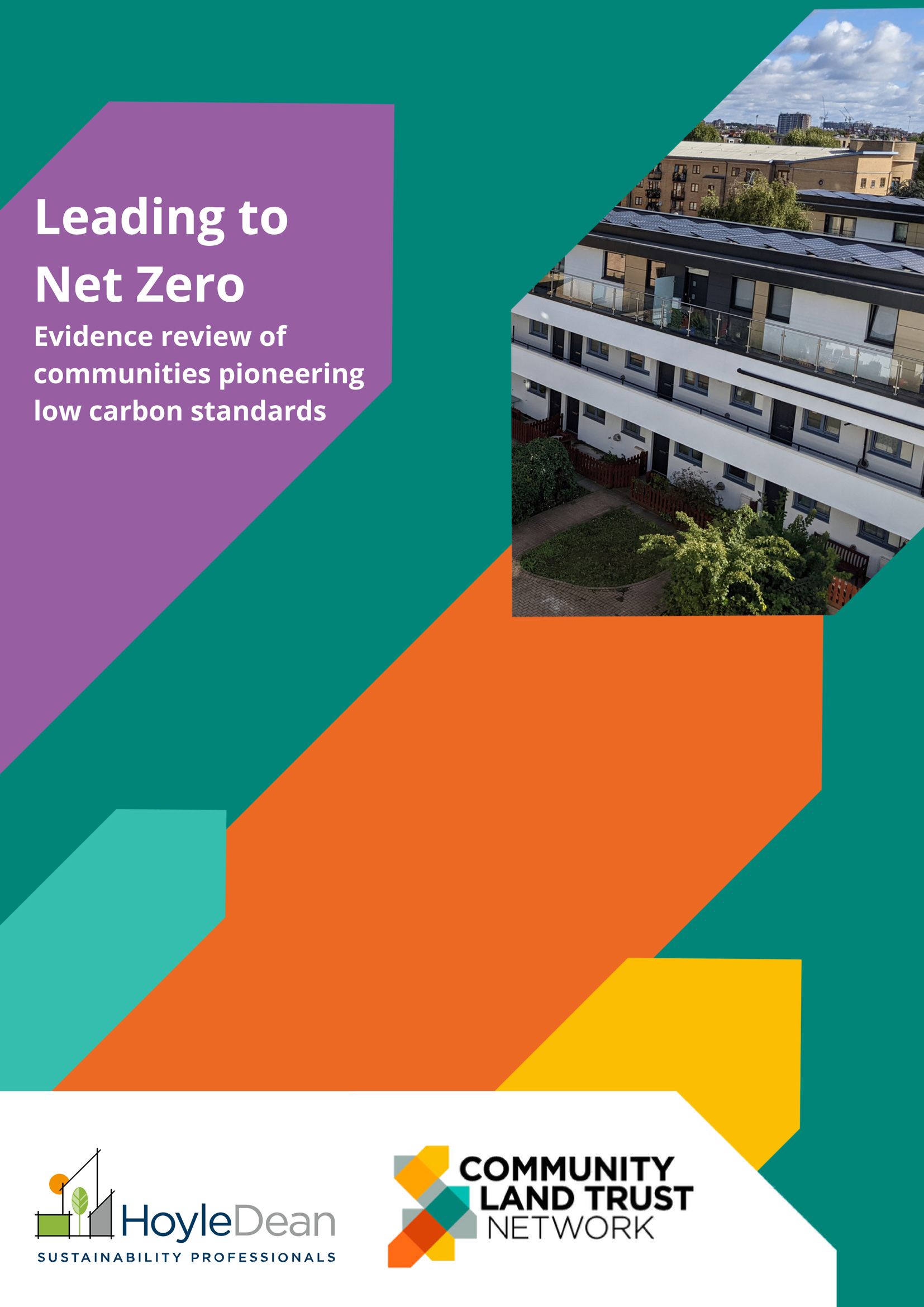
New research published by the Community Land Trust Network finds that Community Land Trust (CLTs) and other community led housing groups are exceeding national and local energy standards, pioneering the net zero carbon agenda.
A review by energy experts HoyleDean of a random sample of projects with planning permission found that community led housing homes have emissions reductions of between 15-57% against national standards, resulting in CO2 savings for households of 1.7-4.8 tonnes per year, and cost savings of £190-750 per year. In all cases, projects were also exceeding higher standards where set by the local planning authority. [1]
An example is Cornwall CLT, which has created over 230 affordable homes in an area where house prices are out of kilter with local wages. The homes are affordable but they all also have a charter, which means all homes incorporate high standards of energy efficiency and ecology. The homes are not only affordable but also cheaper to run. Another 50 homes are in progress.
The Community Land Trust Network is calling on the Department for Levelling Up, Housing and Communities to extend the Community Housing Fund through its spending review settlement, to deliver more than 12,000 low carbon homes. [2]
Tom Chance, chief executive of the Community Land Trust Network, commented: “We know that communities want to tackle the climate crisis, and now we have evidence that they are taking a lead when building new homes.
“They are even managing to go for high standards with challenging affordable housing projects, in a market that is tough for new entrants. Give communities control and they will prioritise quality and sustainability.
“Communities can help the Government to drive higher standards, building skills and supply chains to hit net zero. But they need the Government to extend the Community Housing Fund, helping new entrants develop projects to the point where they can access mainstream grants and lending.”
The Leading to Net Zero study can be accessed here:
[1] The study took 100 homes across 11 projects and analysed — where available — SAP assessments, EPC certificates, energy statements and planning drawings, to estimate the build spec of the homes. These were then compared to a notional spec if the project were to comply with national standards, and with any higher standards required in the Local Plan.
[2] The Community Housing Fund provides communities with revenue funding to form new groups and projects, covering 90% of costs up to starting on site. It also provides funding to the local support organisations and professional advisers that are growing the pipeline and improving delivery. The Community Land Trust Network, together with partners and supporters including the NFU, Citizens UK and CPRE, has called for a £70m fund over three years to maintain delivery of over 12,000 homes in the pipeline and to develop more new projects.








